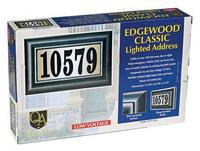
Western Managed Manufacturer - World Class Design and Production
Services
|
Solutions | Products | Who
Are We | Contact
Us
Contact Us •
Commonly Used Terms •
Shipping Info
Home /
Contact Us /
Commonly Used Terms
Commonly Used Shipment and
Payment Terms
Note: Explanation to these terms are for reference only
Shipping/Payment Terms
EXW (Ex Works)
FOB (Free On Board)
CFR (Cost and Freight)
CIF (Cost, Insurance and Freight)
Payment in Advance
LCL (Less than Container Load)
GW (Gross Weight)
NW (Net Weight)
Consignment
AWB (Airway Bill)
B/L (Bill of Lading)
All-Risk Insurance
Telegraphic Transfer (T/T)
EXW (Ex Works)
Seller fulfills the obligation to deliver when he or she has made the goods
available at his/her premises (i.e., works, factory, warehouse, etc.) to the
buyer. In particular, the seller is not responsible for loading the goods in
the vehicle provided by the buyer or for clearing the goods for export,
unless otherwise agreed. The buyer bears all costs and risks involved in
taking the goods from the seller's premises to the desired destination. This
term thus represents the minimum obligation for the seller.
FOB (Free On Board)
Seller fulfills his or her obligation to deliver when the goods have passed
over the ship's rail at the named port of shipment. This means that the
buyer has to bear all costs and risks to loss of or damage to the goods from
that point. The FOB term requires the seller to clear the goods for export.
CFR (Cost and Freight)
Seller pays the costs and freight necessary to bring the goods to the named
port of destination, Terms of Sale but the risk of loss of or damage to the
goods, as (continued) well as any additional costs due to events occurring
after the time the goods have been delivered on board the vessel, is
transferred from the seller to the buyer when the goods pass the ship's rail
in the port of shipment. The CFR term requires the seller to clear the goods
for export.
CIF (Cost, Insurance and Freight)
Seller has the same obligations as under the CFR but also has to procure
marine insurance against the buyer's risk of loss or damage to the goods
during the carriage. The seller contracts for insurance and pays the
insurance premium. The CIF term requires the seller to clear the goods for
export.
Payment in Advance
Upfront payment to exporter before shipment.
LCL
Less than a full container load
Gross Weight
It is the entire weight of goods and packing, which is ready for
shipment.
Net Weight
It stands for "Actual Net Weight". It is weight of goods alone excluding the
packaging.
Consignment
Payments deferred until goods sold.
Air Waybill
It is a shipping document used for the transportation of
airfreight that includes conditions, limitations of liability, shipping
instructions, description of commodity, and the applicable transportation
charges. It is usually similar to a non-negotiable bill of lading and is
used for similar purposes.
Bill of Lading
A contract document agreement between the shipper and the
customer that acts as a receipt for the goods delivered to the carrier for
shipment; a definition or description of the goods; and evidence of title to
the relative goods.
All Risk Insurance
It is a clause in marine insurance policies which
covers loss and damage from external causes, like fire, collision,
pilferage, etc. excluding innate flaws in the goods, like decay, germination
and faulty packaging, improper packing/ loading or loss of market, war,
strikes, riots and civil commotions.
Telegraphic Transfer (T/T)
Electronic transfers of funds through banks.
|
Our Expertise Includes:
Manufacturing
|




